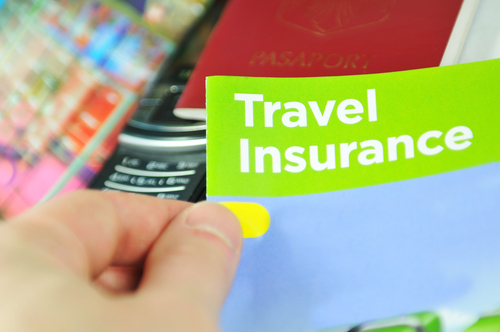Editor's Pick
How to choose the right travel insurance policy

Travel insurance is a vital provision for most trips abroad. However, many holidaymakers can overlook it – with potentially disastrous consequences. This guide should assist you in choosing the right travel insurance policy for you, and your trip.
There are a number of travel insurance policies available, catering to different needs and varieties of trip. These range from general policies covering more standard travel, to specialist plans for niche journeys (such as extreme sports).
As with all insurance, it’s important to review your policy before your trip, to ensure it has every vital base covered. If you opt for basic travel insurance, you may need to enhance the policy with extras, at a supplementary cost. There are a number of areas deserving of specific consideration.
- Property
Adam Powell of Policy Expert recommends that your travel insurance policy includes comprehensive cover for your property at every stage of a trip. This includes baggage cover protecting against loss, theft or damage during transit there and back, and possession cover for the holiday’s duration.
Cover for lost or stolen passports should also be a concern. Figures released under the Freedom of Information Act to the BBC show that 160,050 passports were registered as either lost or stolen abroad between 2008 and the end of October 2013. The loss of a passport can result in delays to your journey back, as well as significant extra costs.
However, Powell notes that cover for holiday money is rarely included in basic travel policies.
“It may be available as an extra, but there will likely be a limit on how much you can insure – and the more cash you insure, the more you’ll pay,” he says.
Powell further warns that some insurers can be unforgiving; if they feel the loss, theft or damage of your property was incurred due to your own negligence, they may not cover the loss. As in the UK, loss and theft should be reported to local police forces, with proof included in any claim you make.
- Health
Naturally, if you’re skiing, surfing or climbing while you’re away, it’s important to ensure your policy covers these activities. Cover for medical emergencies and treatment may also be essential. Any policy you buy should include cover for emergency medical treatment; this could be up to £1m in Europe, perhaps double for the US.
Garry Nelson of AllClear notes that many UK holidaymakers incorrectly assume that a European Health Insurance Card (EHIC) is sufficient medical cover when travelling within the EU. While the card does entitle holders to the same level of care as local residents, costs for supplementary services, such as repatriation, are not covered.
“This is an important distinction, because an air ambulance back to the UK from Europe could cost you over £20,000,” Nelson says.
You also need to think about pre-existing medical conditions when choosing your travel insurance. Travel insurance supplied by banks or credit card companies generally doesn’t provide cover for clients with pre-existing medical conditions, so you’ll have to use a specialist.
“You need to be honest about any conditions you have when taking out any travel insurance cover, too,” says Nelson.
“If you’re not, your policy could be invalidated.”
- Transportation
It’s even possible to secure coverage for missed departures, and abandoned travel. In the case of the former, you’ll only be covered if a journey is cancelled or delayed for reasons beyond your control.
In the case of the latter, you’ll be typically be covered in specific circumstances, such as illness or bereavement.
“The most comprehensive policies will even include cover for additional expenses, such as lost accommodation fees,” says Powell.
- Other considerations
It’s important to check the small print on your policy, and see how long you are covered for. Many policies impose maximum trip lengths – typically, this is around four weeks, but it could be a fortnight. If your trip is longer, you may need to pay for an extension.
“If you travel to a country regarded as unsafe by the Foreign and Commonwealth Office, it is highly unlikely you’ll be able to secure travel insurance,” says Nelson.
“Furthermore, if you’re found to have drunk alcohol or taken drugs during your trip, your policy may be invalidated.”
[article_related_posts]